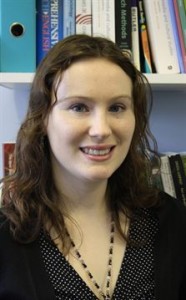 The Religion, Youth and Sexuality: A Multi-faith Exploration project, based at the University of Nottingham, looked at 18 to 25 year-olds from a variety of faith backgrounds in order to understand attitudes and practices around sexuality and how this was negotiated in relation to religious traditions. Dr Sarah-Jane Page, one of the research fellows, talks to Chris about the project’s findings, which were sometimes surprising. Religion is found to be a significant influence, but one influence among a number of others.
The Religion, Youth and Sexuality: A Multi-faith Exploration project, based at the University of Nottingham, looked at 18 to 25 year-olds from a variety of faith backgrounds in order to understand attitudes and practices around sexuality and how this was negotiated in relation to religious traditions. Dr Sarah-Jane Page, one of the research fellows, talks to Chris about the project’s findings, which were sometimes surprising. Religion is found to be a significant influence, but one influence among a number of others.
About Dr. Page
Dr Page completed her doctorate in 2009, in the School of Sociology and Social Policy at the University of Nottingham, investigating motherhood and priesthood as well as the non-ordained spouses of women priests in the Church of England. More recently, she was Research Consultant for the European Commission funded project, Citizens in Diversity: A Four-nation Study of Homophobia and Human Rights (www.citidive.eu). The British case study, with which she was involved, focused on ascertaining types of homonegativity encountered in the UK context, in order to understand the complexities and nuances relating to contemporary attitudes to homosexuality. She is now based at Aston University.
A .pdf of the full findings of the Religion Youth and Sexuality project can be downloaded here, and a podcast about the research is also available. Dr Page has also co-authored a book (with A. K. T. Yip) based on the research which will be published by Ashgate during 2012, entitled Religious and Sexual Journeys: A Multi-faith Exploration of Young Believers.






